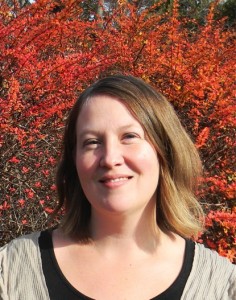The headstone tips toward the sky. I stumble across it on a walk by a road. Uncut grass at its base trembles in the gusts of cars on their way somewhere else. The name of the person buried here rises in a semicircle and below that, a collection of lines takes up the marker’s white face in a font that’s angular and gaunt, stripped of ornament: MOTHER.
Long ago, our ancestors carved straight lines into wood and stone. We carved curses into lead pieces tossed into hot wells: may you become blind, as liquid as water. We carved notes into sticks rushed over seas, messages into trees, poems into weather-pocked crosses in runes: (was; “joy,” “god,” “sun”).
And still we carve, as though we can’t stop. I went to the hilltop as a child. I saw the mountains and a valley between us. I felt the leaves of the lone tree flutter. The gravestones rose to my waist. I fled there through the saplings when I did not understand you. You called to me. You wanted to cross yourself out, the way a letter cutter cuts away stone to leave only verticals and horizontals. You called me and I opened the door to see your body long and without wings, plain and white and unadorned.
A serif is a continuation of a stroke of the pen, the blade. In sans serif, the end of the stroke just ends. Straight lines on paper, wood, stone, skin. Or, we could think of it this way — Sans from the French: without. Serif from the Dutch: line, stroke, or mark. Which is to say, without mark.
And so I witness this: your beautiful body a net of translucent lines, knit whole again, unscarred.
 Jess Fenn’s writing has appeared in such places as DIAGRAM, Cosmopolitan, The Atlantic, and Gulf Coast, where she won the 2013 Gulf Coast Prize in Nonfiction. She teaches English and Creative Writing at SUNY Geneseo. She can be found at www.jrfenn.com.
Jess Fenn’s writing has appeared in such places as DIAGRAM, Cosmopolitan, The Atlantic, and Gulf Coast, where she won the 2013 Gulf Coast Prize in Nonfiction. She teaches English and Creative Writing at SUNY Geneseo. She can be found at www.jrfenn.com.